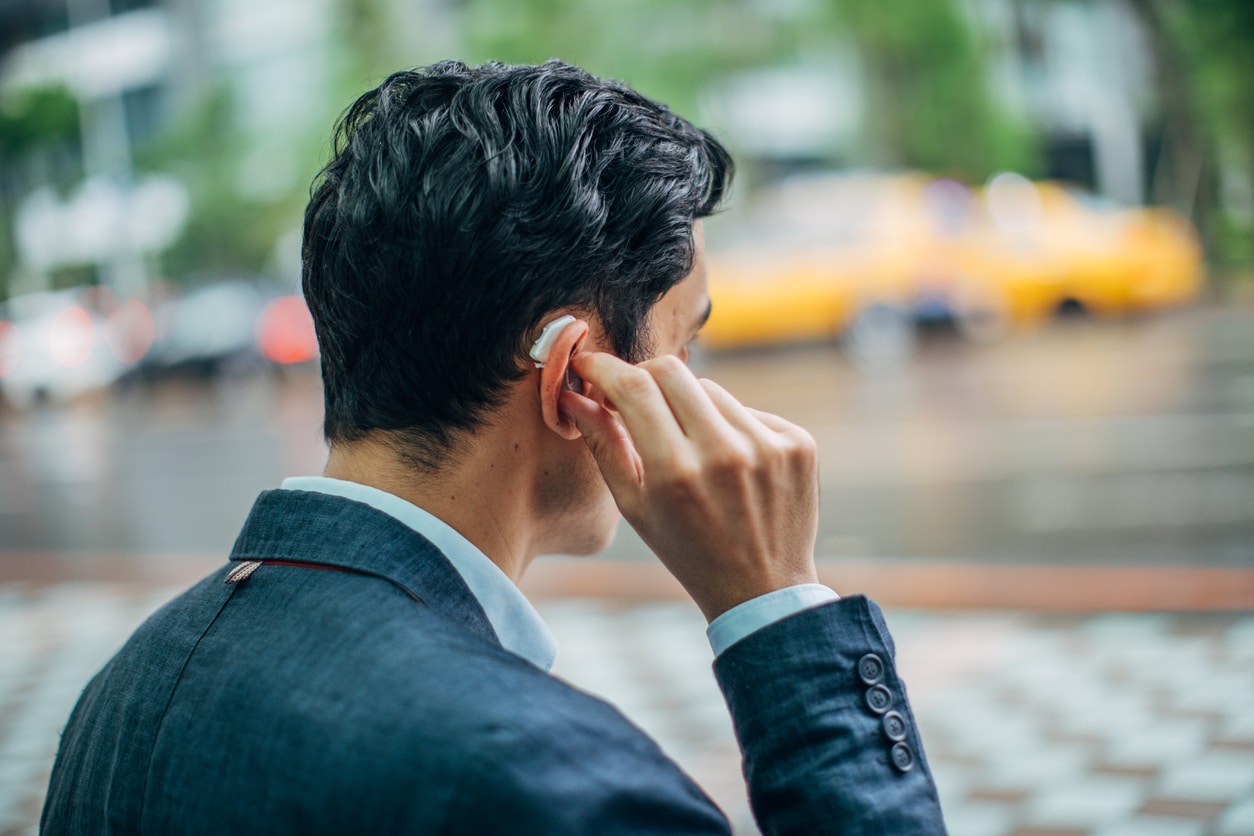Almost 30 million people in the United States could benefit from hearing aids, and if you’ve recently joined their ranks, congratulations! Your new hearing aids will require a bit of an adjustment period, and that can come with several temporary side effects. If you’re feeling tired at the end of the day, that is normal.

A Tired Brain
Your ear gathers sound, but your brain is the organ that processes and interprets what you’re hearing: your brain makes sense of what is making the noise, where the noise is coming from and—if you’re listening to someone speaking—what the words mean. When you have hearing loss, your brain receives less sound information to work with, and as a result, the regions of your brain that process sound get out of shape.
After you start wearing hearing aids, your brain gets a massive increase in sound information that it isn’t used to. This barrage of information uses up a lot of your brain’s mental energy.
What Is Listeners’ Fatigue?
The brain drain described above takes a toll. When your brain spends all its energy on listening, it results in a phenomenon known as “listeners’ fatigue.” Listeners’ fatigue is characterized by mental, physical and emotional exhaustion, and it happens specifically as a result of overworking your brain while trying to hear.
Interestingly, listeners’ fatigue also happens in those with untreated hearing loss (e.g., not wearing hearing aids). This occurs because the brain must work overtime to fill in the gaps of missing sound information. In both cases, whether the brain is overworked due to too much information or not enough, the result is mental exhaustion; however, listeners’ fatigue associated with hearing aids will go away in time. If you’ve been living with untreated hearing loss and feel tired at the end of the day, hearing aids are a way to combat that.
How Can I Alleviate Listeners’ Fatigue Due to Hearing Aids?
The good news is that, as your brain adjusts to the increased workload it’s getting with hearing aids, listeners’ fatigue will decrease and vanish completely. Being diligent and gentle with yourself during this adjustment period is critical. Ultimately, hearing aids decrease listeners’ fatigue, but it takes some work to get there. Here are some tips to help you get through the adjustment period:
Start at Home
Don’t jump into the deep end with your new hearing aids and go to noisy, crowded places. Instead, stay home for a day or two and accustom yourself to the sounds of your home environment and daily routine.
Get Used to the Sound of Your Own Voice
Many report that getting used to the sound of their own voice is one of the most jarring aspects of wearing new hearing aids, and their brain needs to relearn to distinguish that sound as background noise. Narrate your daily routine (“I am walking into the kitchen, and I’m going to make a sandwich. First, I need the bread…”), talk to your pet or read out loud to yourself.
Play Listening Games
Challenge yourself to hear as many sounds as you can. Name the sound, describe it to yourself and verify where it’s coming from. Treat it like a scavenger hunt.
Wear them for Longer Every Day
Try to wear your hearing aids for one hour longer every day. If you wore them for four hours yesterday, wear them for five today. The longer you wear your hearing aids, the faster your brain will adjust.
Talk to Your Audiologist
At your follow-up appointment, make sure you bring up any challenges or concerns with your audiologist. They can give you coping techniques or adjust your hearing aid settings, if necessary, to help alleviate listeners’ fatigue. Remember, this is all a normal part of the adjustment process, so give yourself grace and persevere. Contact Albany ENT & Allergy Services to discuss further. We’re happy to be at the beginning of your journey to better hearing with you.